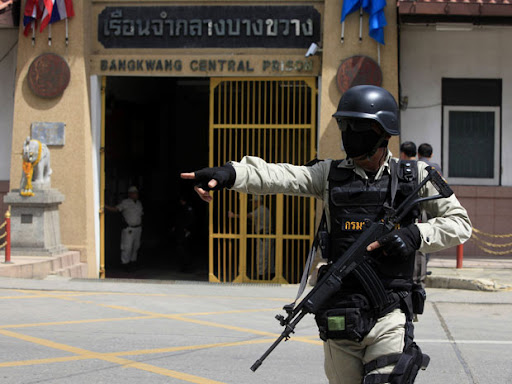Nasir Khan had a successful accessories business, a jet-set lifestyle and reputation as a pillar of the community. But all that vanished in December when he was jailed for his part in a £250m VAT fraud. Jasper Jackson discovers how a 10-year investigation by HMRC led to his downfall At the start of 2001, Nasir Khan was the owner and managing director of a moderately successful accessories business called The Accessory People, which had an annual turnover of £13 million. By the end of that year, however, he was knee-deep in a £250 million VAT fraud involving the import and export of mobile phones. Khan’s journey from businessman to criminal finally ended at Southwark Crown Court fi ve days before Christmas last year, when he became the 15th member of a pan European criminal gang to be jailed for the fraud. Khan got nine years behind bars for money laundering in the last of six trials that resulted in the 14 other defendants being convicted of defrauding the public purse. The gang was sentenced to a total of almost 100 years in prison. The convictions were the culmination of a 10-year investigation by HM Revenue and Customs (HMRC) into a complex web of criminal activity linked to Khan and his associates that encompassed more than 200 companies in the UK, Spain and Holland and bank accounts holding millions of pounds tucked away in Hong Kong, Dubai and Pakistan. Among those convicted for their role in the scam were a drug smuggler, a former used car salesman and a fish and chip shop owner. According to HMRC, Khan and his 14 associates launched their fraudulent operation in June 2001 as the market for mobile accessories went into decline. The fraudsters embarked on a complex version of ‘missing trader’ VAT fraud known as ‘carousel fraud’ because it involves goods passing into and out of a country through a string of companies. The fraudsters would set up a UK company to import goods from the EU, on which it didn’t pay VAT. It would then sell them on to another company in the UK, charging VAT on the sale that should have been paid to HMRC. The second company would in turn sell on the goods to an intermediary controlled by the gang, in order to put distance between the original company and the end of the chain. This process would be repeated a number of times through so-called ‘buffer’ companies in order to disguise the fraud. Eventually, a UK-based firm in the chain would sell the goods to another EU firm outside the UK without charging VAT. Because the fi rm exporting the handsets had paid VAT when buying from firms further back in the chain, it was entitled to collect a refund from HMRC. However, the UK company at the very beginning of the chain would disappear without ever paying the VAT it had made on the first sale and other firms along the chain would also, covering the tracks of the fraudsters in the process. In some cases, the goods themselves would only notionally have the value that was being paid for them, with freight companies brought into the fold to provide seemingly legitimate records of transportation. The process would carry on indefinitely, with the goods that left the country later being reintroduced to the UK. Khan’s firm, The Accessory People (TAP), was one of the buffer firms involved in the scam, and he made huge sums of money helping to launder the proceeds of the carousel fraud. In the space of just two years, between 2001 and 2003, TAP’s turnover rose from £13 million to £219 million. Khan became hugely rich as a result, buying luxury apartments in the Putney Wharf and Chelsea Harbour developments on the Thames in London, as well as properties in Spain and Gibraltar. He also bought a luxury boat. Khan even donated £34,000 to Crimestoppers under the name Nasa Khan. Khan has now had £15 million of his assets frozen as HMRC tries to recoup some of the money lost to the fraud.






 07:26
07:26
 Reporter
Reporter

 Posted in:
Posted in: 

